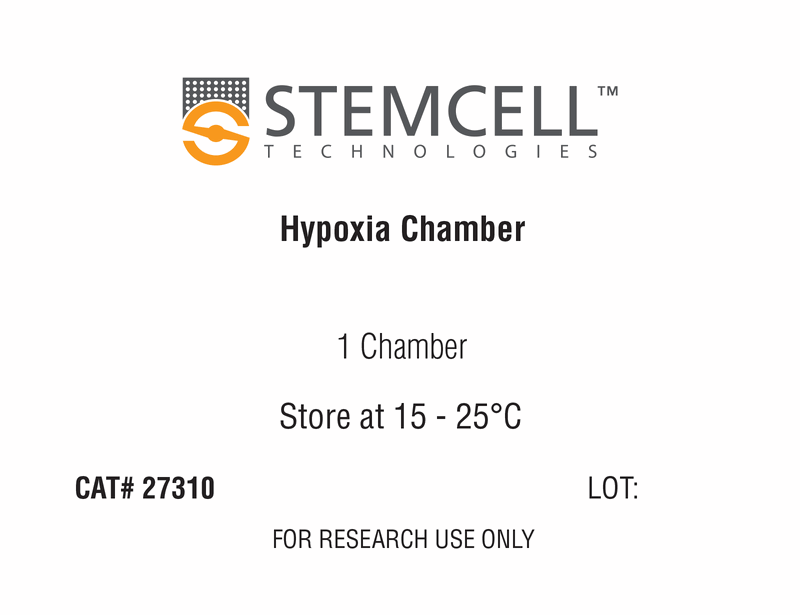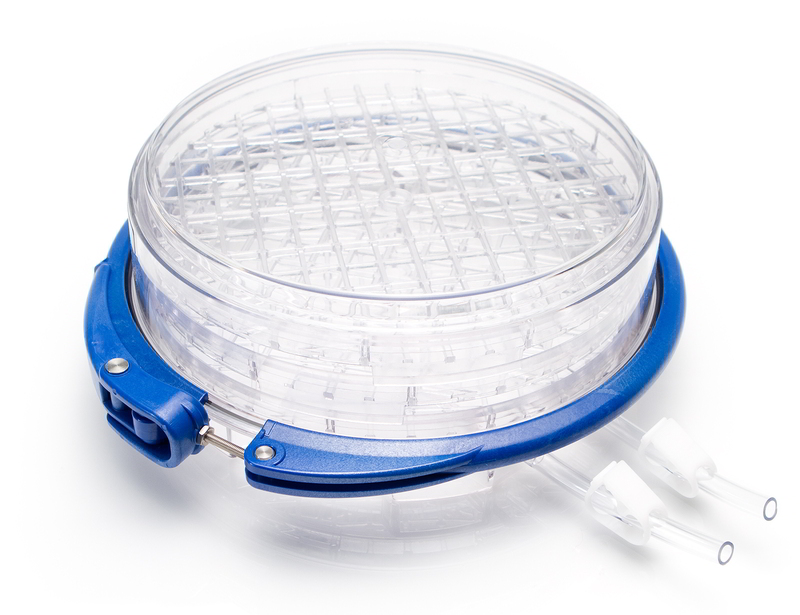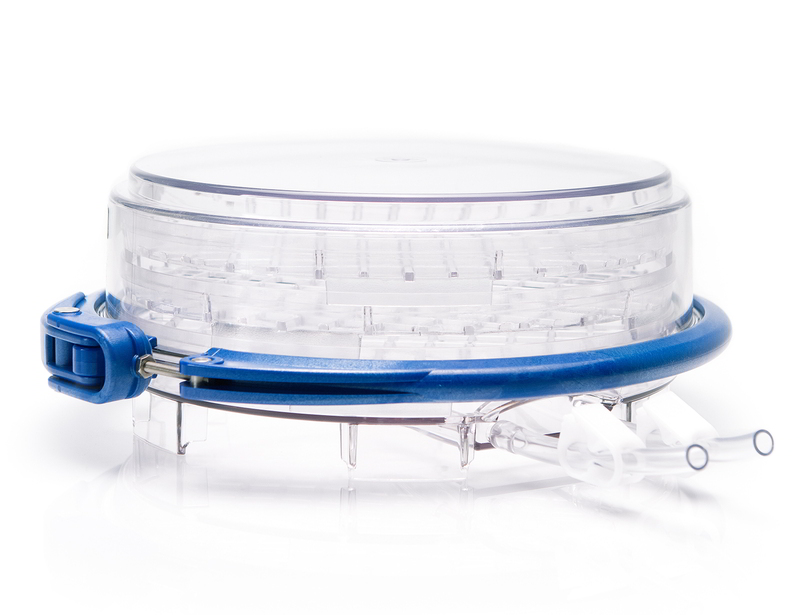概要
The Hypoxia Incubator Chamber is a self-contained and sealed chamber that fits inside existing laboratory incubators. Each unit utilizes a surface-type seal in which all portions of the O-ring are uniformly compressed by a ring clamp for a reliable, air-tight seal. The cylindrical walls and semi-spherical top and bottom minimize gas flow resistance and eliminate dead space during initial purging. The chambers have an integrated stacking feature for storage during or after experimentation. All units are molded from high quality polycarbonate and will not break, crack or cloud with extended use. Capacity: 84 x 35 mm plates, 27 x 60 mm plates, 12 x 100 mm plates, 12 x 96-well plates, 18 x 25 cm² flasks.
Hypoxia Incubator Chamber (Catalog #27310) Components:
• Lid* (Polycarbonate)
• Base* (Polycarbonate) with O-ring and Tubing Clamp
• Tray* (Polycarbonate)
• Ring Clamp
• O-ring
• Tubing Clamp with Tubing
*These parts are guaranteed for 1 year against defects, leaks and breakage. Please do not return any warranty items without written authorization. As we cannot anticipate nor control conditions of product application, we do not warrant suitability or favorable results.
Hypoxia Incubator Chamber (Catalog #27310) Components:
• Lid* (Polycarbonate)
• Base* (Polycarbonate) with O-ring and Tubing Clamp
• Tray* (Polycarbonate)
• Ring Clamp
• O-ring
• Tubing Clamp with Tubing
*These parts are guaranteed for 1 year against defects, leaks and breakage. Please do not return any warranty items without written authorization. As we cannot anticipate nor control conditions of product application, we do not warrant suitability or favorable results.
技术资料
| Document Type | 产品名称 | Catalog # | Lot # | 语言 |
|---|---|---|---|---|
| Product Information Sheet | Hypoxia Incubator Chamber | 27310 | All | English |
数据及文献
Publications (1)
2014
Generation of iPS Cells from Human Peripheral Blood Mononuclear Cells Using Episomal Vectors
Abstract
Abstract
Peripheral blood is the easy-to-access, minimally invasive, and the most abundant cell source to use for cell reprogramming. The episomal vector is among the best approaches for generating integration-free induced pluripotent stem (iPS) cells due to its simplicity and affordability. Here we describe the detailed protocol for the efficient generation of integration-free iPS cells from peripheral blood mononuclear cells. With this optimized protocol, one can readily generate hundreds of iPS cell colonies from 1 ml of peripheral blood.

 网站首页
网站首页




